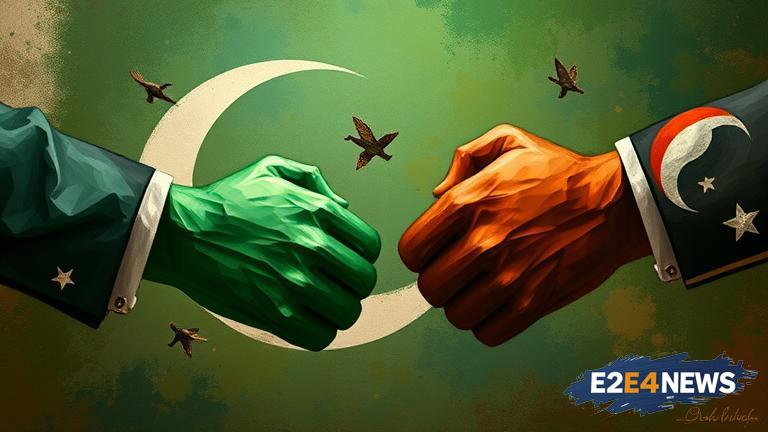Pakistan’s diplomatic relationships with other countries have long been a subject of intrigue and curiosity. The country’s unique geographical location, coupled with its complex history and cultural diversity, has led to the formation of enigmatic ties with various nations. One of the primary factors influencing Pakistan’s diplomatic relationships is its proximity to the Middle East and Central Asia. The country’s strategic location has made it an important player in regional politics, with many countries vying for its attention and cooperation. Pakistan’s relationships with countries like the United States, China, and Saudi Arabia are particularly noteworthy, as they have significant implications for regional and global politics. The country’s ties with the US, for instance, have been marked by periods of cooperation and tension, with issues like counter-terrorism and nuclear proliferation being major points of contention. On the other hand, Pakistan’s relationship with China has been steadily strengthening, with the two countries cooperating on multiple fronts, including trade, infrastructure development, and defense. Saudi Arabia, another key player in the region, has also been a significant partner for Pakistan, with the two countries sharing strong cultural and economic ties. However, Pakistan’s relationships with neighboring countries like India and Afghanistan have been more complex, with issues like border disputes and terrorism posing significant challenges. The country’s diplomatic efforts have been focused on resolving these issues and promoting regional stability. Despite these challenges, Pakistan has made significant strides in recent years, with its economy showing signs of growth and its international reputation improving. The country’s participation in regional organizations like the Shanghai Cooperation Organization (SCO) and the Economic Cooperation Organization (ECO) has also helped to promote its diplomatic ties with other countries. Furthermore, Pakistan’s diplomatic relationships have been influenced by its domestic politics, with different governments pursuing different foreign policy agendas. The country’s military has also played a significant role in shaping its diplomatic relationships, with the army being a key player in regional politics. In addition, Pakistan’s diplomatic efforts have been focused on promoting its national interests, including the protection of its sovereignty and territorial integrity. The country has also been actively engaged in international organizations like the United Nations, where it has played a key role in promoting regional and global peace and security. Pakistan’s diplomatic relationships have also been influenced by its cultural and economic ties with other countries, with the country being a significant player in regional trade and cultural exchange. The country’s relationships with countries like Turkey and Iran have also been noteworthy, with the three countries sharing strong cultural and historical ties. In recent years, Pakistan has also been actively engaged in promoting its soft power, with the country’s cultural and artistic achievements being showcased around the world. Overall, Pakistan’s diplomatic relationships are complex and multifaceted, with multiple factors influencing its ties with other countries. As the country continues to navigate the complexities of regional and global politics, its diplomatic efforts will remain focused on promoting its national interests and promoting regional stability. With its unique geographical location and cultural diversity, Pakistan is poised to play an increasingly important role in regional and global politics. The country’s diplomatic relationships will continue to be shaped by its domestic politics, military, and cultural ties, with its participation in regional organizations and international forums remaining a key aspect of its foreign policy. As Pakistan continues to grow and develop, its diplomatic relationships will remain a critical aspect of its national security and economic development. The country’s ability to navigate the complexities of regional and global politics will be crucial in promoting its national interests and achieving its foreign policy objectives. In conclusion, Pakistan’s diplomatic relationships are a complex and multifaceted phenomenon, with multiple factors influencing its ties with other countries. As the country continues to evolve and grow, its diplomatic efforts will remain focused on promoting its national interests and promoting regional stability.
